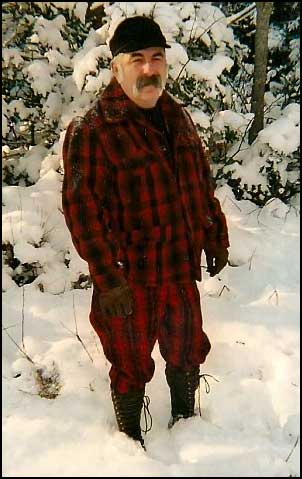By Allison Campbell-Jensen
To get started in his career, Robert “Bob” Jansen first had to be fired. After the College of St. Scholastica in Duluth fired him from teaching in their theater program, he sued the college. Jansen won and he used the settlement money to establish the Main Club for gay people.
In the years since its founding in 1983, the gay bar became not only a watering hole but also a center for the gay community. Now Jansen is honoring that history by remembering the Jean Nickolaus Tretter Collection in GLBT Studies in his will.
A growing awareness
Jansen spent his earliest years on a farm and then his family moved to St. Croix Falls, Wisconsin, a small town where he felt like an outsider. During his teenage journals, he wrote, “Each person has a double life,” as recounted in the 2011 documentary “The Main.” He completed his college degree quickly and went to California State University in Fresno, where he came to terms with his sexuality.
He returned to the Duluth area. After the court battle with St. Scholastica, it wasn’t easy to get a liquor license, Jansen says; it took about eight months. He initially established The Main Club in an out-of-the-way area in Superior, Wisconsin, a “bad part of town.” After the club burned down, killing two people, Jansen decided to rebuild downtown.
“They should feel good about themselves,” he says of his gay clientele. “How they are treated in the bar was how they should feel in the outside world.” Jansen wanted gay people to feel respected, to meet friends, and to have fun.
Roles in the community
“How they are treated in the bar was how they should feel in the outside world.”
—Robert “Bob” Jansen
The Main Club showed erotic movies and had posters from other gay clubs around the country, so people knew where to go when they traveled. But it wasn’t all fun. Jansen also founded the Greater North AIDS Project. And when Karen Thompson was fighting for custody of her partner Sharon Kowalski, who had been disabled in an accident with a drunk driver, the Main Club was one of the places that supported her by hosting a fundraiser.
Jansen helped organize Pride celebrations and became well-known in the larger community. He compares his standing to that of a Senator’s wife: “It’s a certain role model position you obtain — but you weren’t elected to the office.” Although he didn’t fully realize it at the time, he was witnessing a historic shift in the gay community, too, as gay bars became less prominent.
The community has become more diverse, he says, but also more separated. When kids today ask him how they met people, Jansen mentions writing letters through personal ads in the Advocate. “Now with the Internet, people can live in a bottle,” Jansen says. “It reinforces the issue of being alone, which is what we started with” in establishing gay bars. Even though society in general has become more accepting of gay people, he worries about online bullying, which is frightening.
Leaving a legacy
Jansen retired a few years ago and thought about a way to leave a legacy for the next generation. He has known Tretter since the 1980s; at one march they attended together in Washington, D.C., Tretter was pulling posters out of trash cans — already thinking about preserving the history of the gay movement. The schools won’t teach their history, says Jansen, and he wants to contribute to something that will.
Jansen’s gift includes funds to use however the head of the Tretter Collection decides is appropriate and his fabulous house built in the Victorian era. Looking back, Jansen says: “You hope that you are doing the right things for people and the community.” With support from people like Jansen, the Tretter Collection will continue do the right thing — to bear witness to a too-often-neglected history.





